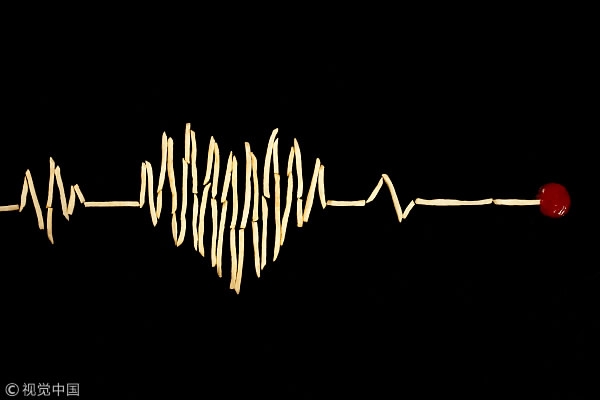
Health
22:16, 09-Feb-2018
Terminally ill patients in S. Korea get right to 'die with dignity'
By Wang Hao

A new law in South Korea allows terminally ill patients to reject medical treatment. It is called the "dying with dignity" law that reflects changing social attitudes toward death in the country.
Hong Yang-hee is working to break the taboo surrounding death. She counsels people on what they would do on becoming terminally ill. Her clients fill out a form that allows them to legally reject treatment in the event of a medically irrecoverable state.
"Filling out this form doesn't mean you're going to die early. It helps you think about a dignified and beautiful completion of your life. It also gives you a chance to thoroughly communicate with your family," she said.

A new law in South Korea allows patients suffering from terminal ailments to reject medical treatment. /VCG Photo
A new law in South Korea allows patients suffering from terminal ailments to reject medical treatment. /VCG Photo
In a landmark decision in 2009, South Korea's Supreme Court ordered a local hospital to pull a comatose patient off a respirator. The court ruled that administering medical treatment to a patient with no hope for recovery violates that individual's fundamental dignity.
In 2016, lawmakers drew up a new bill that would allow the terminally ill to reject four types of medical treatments – CPR, dialysis, artificial respiration, and anti-cancer drugs. Patients must be diagnosed by a medical professional and conscious when making the decision.
"First there needs to be a medical decision that a patient has no chance of recovery. Then you must confirm the patient's desires. But the majority of patients needing life-sustaining treatment can't fully convey their intents. So this law aims to allow patients to express their intent in advance," said Lee Yoon-seong, director of Korea National Institute For Bioethics Policy.
Opinion polls show more than 90 percent of the public is against meaningless life-extending treatment.

Opinion polls show over 90 percent of the public against meaningless life-extending treatment. /VCG Photo
Opinion polls show over 90 percent of the public against meaningless life-extending treatment. /VCG Photo
Professor Heo Dae-seog, who specializes in patients battling brain tumors, said more than half of his patients succumb to their ailments. And many do not meet the requirements under the new law to reject medical treatment.
"The law was made to reflect a patient's right to decide. But we've seen less than ten percent of people pass away by invoking this right. That means about 80 percent of patients fall outside the intent of the law, so there's a procedural issue that must be addressed."
Embracing death is seen as disrespectful to life and non-conforming to traditional Confucian values in South Korea. But as times change, the right to die well is becoming just as important as the right to live well.

SITEMAP
Copyright © 2018 CGTN. Beijing ICP prepared NO.16065310-3
Copyright © 2018 CGTN. Beijing ICP prepared NO.16065310-3